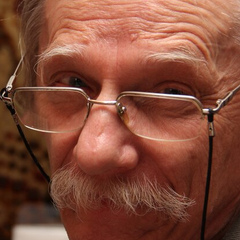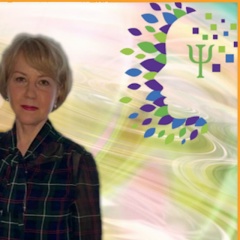В прошлый понедельник посмотрела спектакль "Эффект Чарли Гордона" в Таком театре по мотивам романа Даниэла Киза "Цветы для Элджернона" и осталась в восторге. Очень точный и пронзительный спектакль-размышление, спектакль-перевоплощение. Несколько лет назад я уже смотрела постановку по этому роману в Александринском театре, но она произвела на меня гораздо меньшее впечатление в силу своей классичности и несвязности. Сам роман совсем не классический - это, скорее, одинокий крик надежды, страха, поиска и падения, крик из глубин человеческой психики.
В постановке Такого театра история Чарли, умственно отсталого но замечательного парня, мечтавшего поумнеть и найти друзей, становится предельно концентрированной, понятной, близкой и цепляющей. Через ряд живых и насыщенных сцен, то забавных, то грустных, мы проходим вместе с героем через борьбу за разум, через боль и трудности осознания своего "я", своей истории, через принятие своего одиночества и через страх перед неизбежной деградацией. При просмотре спектакля ощущаешь, насколько хрупок и уязвим наш разум и как страшно терять его. Кажется, Шпенглер сравнивал сознание с одинокими островками среди бушующего океана неосознанного. Океан страха, боли, растерянности со всех сторон захлёстывает разум героя и в конце хочется вместе с ним повторять молитву: "Господи, пусть я не разучусь хотя бы читать и писать".
Особая находка постановки - это мышь Элджернон, блестяще отображённая и как персонаж романа. и как сама судьба, неотступно следующая за Чарли. Повадки, речь, жесты и мимика - всё нечеловеческое, мышиное. А сцена с выстрелами - замечательное и уместное отступление авторов спектакля в область собственных рассуждений о книге.
Здесь много аллюзий и с Франкенштейном, Гомункулусом, уже раскрывших тему ответственности создателя за своё создание и жестокости общества к тем, кто не способен приспособиться к "нормальной" жизни. Впрочем "норма" - если верить создателям спектакля - лишь ещё одна провокация.
А в конце мы понимаем: герой "отмучился", ему вернули покой. но мы так и не можем понять, когда же он был счастливее - или несчастнее - когда был гением или дурачком. Что неотвратимо отдаляет нас от других - разум или глупость, и почему ни голос разума, ни голос сердца другие не могут услышать.
В постановке Такого театра история Чарли, умственно отсталого но замечательного парня, мечтавшего поумнеть и найти друзей, становится предельно концентрированной, понятной, близкой и цепляющей. Через ряд живых и насыщенных сцен, то забавных, то грустных, мы проходим вместе с героем через борьбу за разум, через боль и трудности осознания своего "я", своей истории, через принятие своего одиночества и через страх перед неизбежной деградацией. При просмотре спектакля ощущаешь, насколько хрупок и уязвим наш разум и как страшно терять его. Кажется, Шпенглер сравнивал сознание с одинокими островками среди бушующего океана неосознанного. Океан страха, боли, растерянности со всех сторон захлёстывает разум героя и в конце хочется вместе с ним повторять молитву: "Господи, пусть я не разучусь хотя бы читать и писать".
Особая находка постановки - это мышь Элджернон, блестяще отображённая и как персонаж романа. и как сама судьба, неотступно следующая за Чарли. Повадки, речь, жесты и мимика - всё нечеловеческое, мышиное. А сцена с выстрелами - замечательное и уместное отступление авторов спектакля в область собственных рассуждений о книге.
Здесь много аллюзий и с Франкенштейном, Гомункулусом, уже раскрывших тему ответственности создателя за своё создание и жестокости общества к тем, кто не способен приспособиться к "нормальной" жизни. Впрочем "норма" - если верить создателям спектакля - лишь ещё одна провокация.
А в конце мы понимаем: герой "отмучился", ему вернули покой. но мы так и не можем понять, когда же он был счастливее - или несчастнее - когда был гением или дурачком. Что неотвратимо отдаляет нас от других - разум или глупость, и почему ни голос разума, ни голос сердца другие не могут услышать.
Last Monday I watched the play "The Effect of Charlie Gordon" in such a theater based on the novel by Daniel Keyes "Flowers for Algernon" and was delighted. Very accurate and piercing performance-reflection, performance-transformation. A few years ago I already watched a production of this novel in the Alexandrinsky Theater, but it made me a much lesser impression due to its classical and incoherent nature. The novel itself is not at all classic - it is rather a lone cry of hope, fear, search and fall, a cry from the depths of the human psyche.
In the production of such a theater, the story of Charlie, a mentally retarded but wonderful guy who wanted to grow wiser and find friends, becomes extremely concentrated, understandable, close and catchy. Through a series of lively and saturated scenes, sometimes funny or sad, we go through the struggle with the hero through the struggle for the mind, through the pain and difficulties of recognizing our "I", our history, through the acceptance of our loneliness and through the fear of inevitable degradation. When you watch a performance, you feel how fragile and vulnerable our mind is and how terrible it is to lose it. Spengler seems to be comparing consciousness to lonely islets among the raging ocean of the unconscious. An ocean of fear, pain, confusion overwhelms the mind of the hero from all sides and in the end I want to repeat the prayer with him: "Lord, let me not forget how to even read and write."
A special find of the production is the mouse Algernon, brilliantly displayed as a character in the novel. and like fate itself, relentlessly following Charlie. Habits, speech, gestures and facial expressions - everything is inhuman, mouse. And the scene with the shots is a wonderful and appropriate retreat of the authors of the play in the area of their own discussions about the book.
There are many allusions to Frankenstein and Homunculus, who have already revealed the theme of the creator’s responsibility for their creation and the cruelty of society to those who are unable to adapt to a “normal” life. However, the "norm" - according to the creators of the play - is just another provocation.
And in the end, we understand: the hero "exhausted", peace was returned to him. but we still cannot understand when he was happier - or unhappy - when he was a genius or a fool. What inevitably distances us from others is reason or stupidity, and why neither the voice of reason, nor the voice of the heart can hear.
In the production of such a theater, the story of Charlie, a mentally retarded but wonderful guy who wanted to grow wiser and find friends, becomes extremely concentrated, understandable, close and catchy. Through a series of lively and saturated scenes, sometimes funny or sad, we go through the struggle with the hero through the struggle for the mind, through the pain and difficulties of recognizing our "I", our history, through the acceptance of our loneliness and through the fear of inevitable degradation. When you watch a performance, you feel how fragile and vulnerable our mind is and how terrible it is to lose it. Spengler seems to be comparing consciousness to lonely islets among the raging ocean of the unconscious. An ocean of fear, pain, confusion overwhelms the mind of the hero from all sides and in the end I want to repeat the prayer with him: "Lord, let me not forget how to even read and write."
A special find of the production is the mouse Algernon, brilliantly displayed as a character in the novel. and like fate itself, relentlessly following Charlie. Habits, speech, gestures and facial expressions - everything is inhuman, mouse. And the scene with the shots is a wonderful and appropriate retreat of the authors of the play in the area of their own discussions about the book.
There are many allusions to Frankenstein and Homunculus, who have already revealed the theme of the creator’s responsibility for their creation and the cruelty of society to those who are unable to adapt to a “normal” life. However, the "norm" - according to the creators of the play - is just another provocation.
And in the end, we understand: the hero "exhausted", peace was returned to him. but we still cannot understand when he was happier - or unhappy - when he was a genius or a fool. What inevitably distances us from others is reason or stupidity, and why neither the voice of reason, nor the voice of the heart can hear.

У записи 8 лайков,
0 репостов.
0 репостов.
Эту запись оставил(а) на своей стене Даша Томасова





























